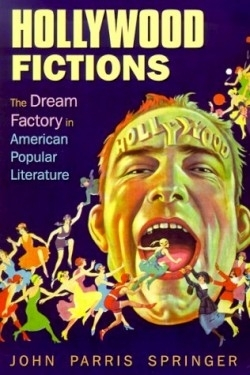Hollywood Fictions
The Dream Factory in American Popular Literature
The 1920s and 30s are usually regarded as Hollywood’s “golden years,” when the film industry began first to capture America’s, and then the world’s, imagination. More than a booming town that had humble beginnings, Hollywood became a symbol both of entertainment and expectation and of decaying social values and loose morality.
In his well-researched and artfully written exploration of the fiction that arose from Tinseltown, Springer casts new light on the city and its denizens. By tracing the novels and short stories that tried to capture Hollywood’s heyday, rather than looking at the films during that era, Springer gives nuance and substance to his geographical subject. He writes, “Hollywood fictions articulate the social and sexual fantasies emanating from the film capital as well as deep-seated anxieties and concerns about the influence of Hollywood and the movies on traditional social and cultural values.”
Citing a large variety of works, from 1916’s first Hollywood novel, The Glory Road, to later satires and fan magazine writing, Springer shows that Hollywood was represented in contradictory ways, presenting conflicting images that attempted to address weighty themes like sin and redemption, betrayal and loss and illusion and reality.
Although he also discusses non-fiction works such as Benjamin B. Hampton’s 1931 book, A History of the Movies, the author excels most when delving into the fictional work that boomed during the time, showing that just as the novels and short stories drew their narrative structure and characterization from film, so too did the film industry come to novelists and short story writers for inspiration. Springer, true to his subject, displays a rather charming cinematic quality to his own writing, describing authors as if they were characters about to enter a scene. Even if many of the books he discusses are long-forgotten, Springer’s insightful analysis of their worth for understanding our cultural landscape should not be missed.
Reviewed by
Elizabeth Millard
Disclosure: This article is not an endorsement, but a review. The publisher of this book provided free copies of the book to have their book reviewed by a professional reviewer. No fee was paid by the publisher for this review. Foreword Reviews only recommends books that we love. Foreword Magazine, Inc. is disclosing this in accordance with the Federal Trade Commission’s 16 CFR, Part 255.

